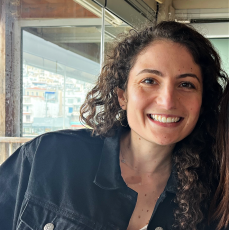Following two incredible weeks on the road, I have much to report!
The CPI team has led two “resource advocacy” workshops and four “fora peace outreach” camps, divided evenly between IlChamus and Pokot communities. This post is dedicated to the resource advocacy workshops, and the following to fora outreach camps.
First, some context. CPI has engineered a highly localized model to address the resource needs of tribal communities in northwest Kenya, informed by the economic and political context of the specific county (in this case, Baringo County). The term “resources” can mean many different things, but for this workshop, it refers to the following: healthcare resources (water boreholes, hospitals, dispensaries); education resources (schools); security resources (police stations and new roads connecting them); agriculture resources (pipes for irrigation), and the like.
In the two multi-day workshops held in Sirata (IlChamus) and Komolion (Pokot) sublocations, CPI began by explaining how the tax system works in Kenya, and how county officials unfortunately often do not deliver on the resource needs of these groups (thus contributing to further marginalization). We explained how VAT is making basic goods like sugar expensive, and that governing institutions are accused of diverting tax payer money–at the expense of funding development projects. At the county level, county government officials do come to the sublocations to meet with constituents and hear their needs; however, this often amounts to overpromising and underdelivering. Seen by the participants’ attentiveness, inquisitiveness, and comments, it was clear this “basic” civic education was new information for many.
We also discussed development projects in their sublocations that the government has either promised or started, but not completed or begun at all.
The CPI team divided the participants into small groups and asked them to map out the resources present in their village. They used mugs to represent churches; stones to represent dispensaries, water bottles for schools, sticks for cattle dips, etc. This interactive activity allowed participants to take a holistic look at what they have, and what is lacking.
Then, the groups reconvened into plenary and discussed the overall resource needs based on their findings. They engaged in an extensive voting system by using the “Pairwise Ranking” method to fairly rank the priorities. Not unexpectedly, the Pokot and IlChamus identified slightly different priority areas. For example, the IlChamus identifed security as priority #1, while the Pokot said healthcare. This makes sense, seeing as the IlChamus are more vulnerable to attacks, whereas the Pokot live further into the bush away from such facilities.
Next came my favorite part of the workshop, where participants discussed the top three priority areas and identified the issues, causes, coping mechanisms, strategic solutions, and potential sources of support. I was amazed at the solutions that they already implement to combat these challenges. For example, IlChamus in Sirata cope with lack of clean water by treating it with locally available plants and waterguard. The Pokot in Komolion sell aloe vera, firewood, and (unfortunately) water to provide alternative sources of income. Reflecting on these examples, I am reminded that outsiders should never underestimate the knowledge and creativity of individuals facing marginalization or poverty.
With the resource needs and priorities established, the chiefs were tasked with identifying a small group of participants to serve as the sublocation’s “resource advocacy committee,” responsible for advocating their priority needs to the county government. They now know that if the community does not follow up, the projects will unlikely be completed. This month, Baringo government officials will visit Sirata, and I look forward to hearing how the Sirata resource advocacy group takes initiative.
Posted By Olivia Landau
Posted Jul 4th, 2024





2 Comments
Bobbi Fitzsimmons
July 7, 2024
This sounds like a good start. I look forward to follow ups to see how they are doing.
Mary Ellen Cain
July 8, 2024
It’s great to see the Sirate and Komolion communities working together in these CPIK-sponsored workshops. It sounds like they are very motivated to improve their living conditions and to make sure the government follows through on their promises. Definitely looking forward to progress reports!